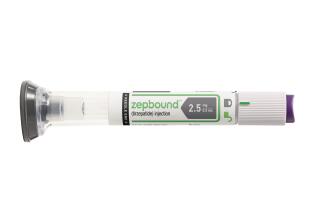New Diet Drug Aims to Fill the Fen-Phen Gap
- Share via
This week, some physicians plan to begin writing prescriptions for Meridia (sibutramine). It’s the first new prescription diet drug to go on the market since last fall’s recall of fenfluramine (the “fen” half of the popular fen-phen diet combo) and Redux after the medicines were linked with potentially fatal heart valve abnormalities.
Those physicians who were staunch advocates of fen-phen and Redux sound cautiously optimistic. They emphasize that they will prescribe the newest diet drug only for appropriate overweight patients--not for those hoping to lose 10 pounds by swimsuit season--and that they will follow and monitor these patients very closely.
Meridia was approved by the Food and Drug Administration in November, but the manufacturer, Knoll Pharmaceutical Co., was awaiting a decision by the Drug Enforcement Administration on how the drug should be regulated. That decision came last week, when the DEA ruled that Meridia will be classified as a Class IV drug. These drugs are considered to have a low potential for abuse, but there are restrictions such as limits on the number of refills.
Exactly when Meridia will be available at pharmacies and weight loss centers will vary, depending on the distributor supplying them.
“Knoll began shipping on the 10th,” says Linda Mayer, a spokeswoman for the company. “In some places, Meridia will be available in a matter of a few days . . . in others, a few weeks.”
By mid-March, the drug should be available in most locations, Mayer says. The retail cost is expected to be about $3 a day--for the drug and enrollment in a program offered by Knoll, which includes access to toll-free telephone nutritional counseling, a newsletter and other information. Physicians who plan to prescribe Meridia say patients will be instructed to reduce calories and to engage in regular exercise as part of a comprehensive weight-loss plan.
“Meridia works in a completely different way,” Mayer says. While fenfluramine and Redux boost production of serotonin, an appetite-regulating brain chemical, Meridia slows down its dissipation, she says.
People should not take Meridia if they are already taking medications that regulate serotonin, such as Prozac.
Also, when the FDA approved Meridia, it noted that the drug can cause increases in blood pressure. The drug should not be used in those with uncontrolled or poorly controlled high blood pressure.
The new drug is intended for those with a body mass index of 30, which translates to being about 30% above ideal body weight, or for those with a BMI of 27 ( about 20% above ideal body weight) and other risk factors such as diabetes.
“We’re going to write prescriptions as soon as the pharmacy will honor them,” says Dr. Donald Jensen, founder of Manhattan Weight Control Centers, which has closed 15 of its offices in Southern California since the recall of fenfluramine and Redux and now operates four clinics.
“Everyone’s gun-shy,” Jensen says, but “everybody’s looking for something to replace fen-phen.”
Adds Dr. Peter D. Vash, executive medical director of Lindora Medical Clinics, with 32 locations in Southern California, “We have learned something from fen-phen. The public is going to be slow to rush to this.”
He says Lindora will have strict guidelines for those taking Meridia. “The people who got into trouble” with fen-phen were taking higher-than-recommended doses and taking the drug in combination with other medications, he says.
At Lindora, patients on Meridia will be required to check in in person every day, he says. He expects patients will be put on Meridia for three months and then reevaluated.
Knoll Pharmaceutical says it is trying to keep physicians educated about Meridia. Over the weekend, for instance, it sponsored a seminar for doctors in the Los Angeles area.






